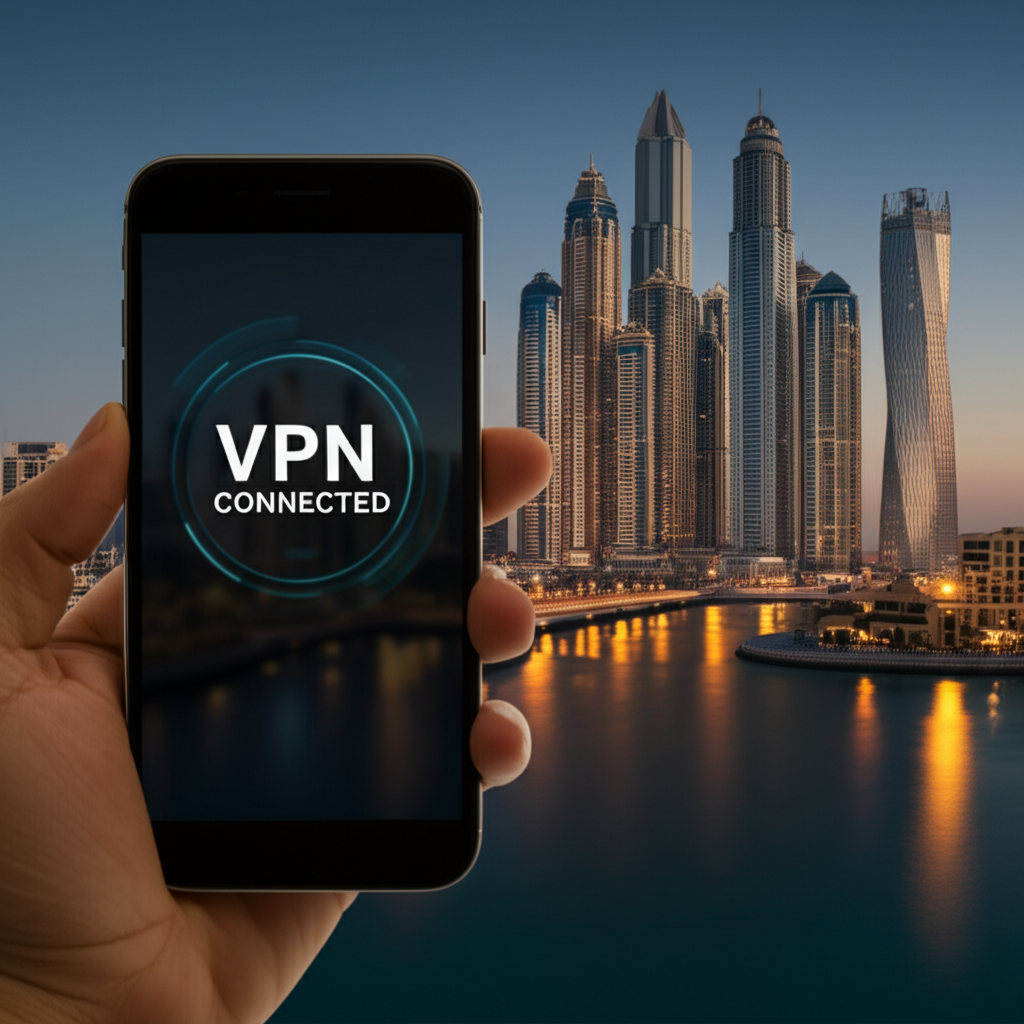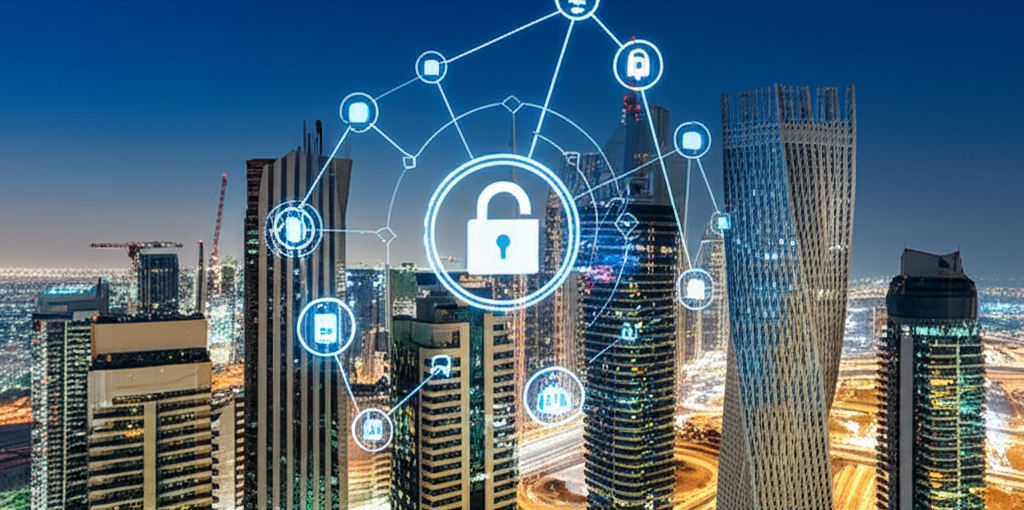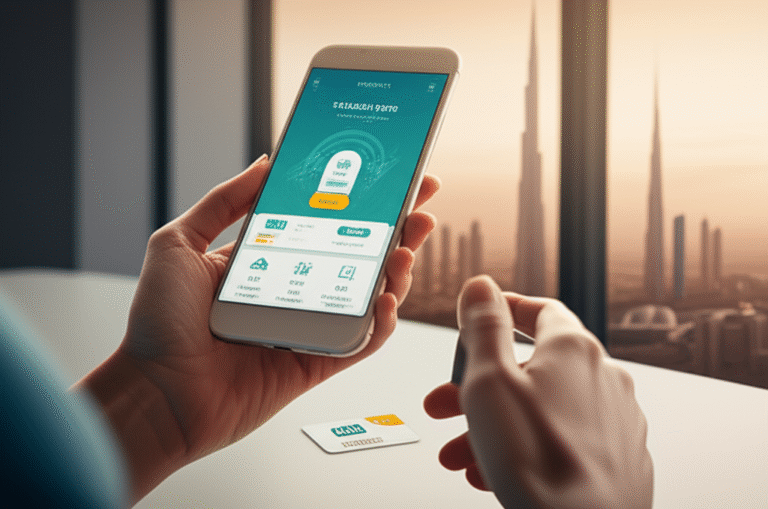Yes, you can use a VPN in Dubai, but it’s crucial to understand the local laws and regulations. While using a VPN is not illegal, certain online activities might be restricted. This guide will help you navigate VPN usage safely and effectively in Dubai, ensuring you stay connected without issues.
Can You Use VPN in Dubai: Your Essential Guide
Navigating the digital world in Dubai can sometimes feel a bit complex, especially when it comes to staying connected and accessing content freely. Many residents and visitors wonder, “Can you use VPN in Dubai?” The answer is yes, but it comes with important considerations. As your trusted telecom guide, I’m here to break down exactly what you need to know in simple, easy-to-understand steps. We’ll cover why you might want to use a VPN, what the laws say, and how to choose and use one safely.
Dubai is a hub of innovation and connectivity, but like many places, it has specific regulations about internet usage. Understanding these can save you a lot of hassle. Whether you’re looking to access geo-restricted content, enhance your online privacy, or simply ensure a secure connection on public Wi-Fi, a VPN can be a valuable tool. Let’s dive into everything you need to know to use a VPN confidently in Dubai.
Contents
- 1 Understanding VPNs and Their Purpose in Dubai
- 2 The Legal Landscape: Using VPNs in Dubai
- 3 Why You Might Need a VPN in Dubai
- 4 Choosing the Right VPN for Dubai
- 5 How to Use a VPN in Dubai: Step-by-Step
- 6 Using VPNs with Etisalat and DU Services
- 7 Potential Challenges and How to Overcome Them
- 8 Best Practices for VPN Usage in Dubai
- 9 VPNs and Online Privacy in the UAE
- 10 Frequently Asked Questions (FAQ)
- 11 Conclusion
Understanding VPNs and Their Purpose in Dubai
A Virtual Private Network, or VPN, is a service that creates a secure, encrypted connection over the internet. Think of it as a private tunnel for your online activity. When you connect to a VPN server, your internet traffic is routed through that server, masking your real IP address and encrypting your data. This offers several benefits, especially in a place like Dubai.
One of the main reasons people use VPNs in Dubai is to bypass geographical restrictions. Some websites and streaming services, like certain Netflix libraries or BBC iPlayer, are only available in specific countries. By connecting to a VPN server in another country, you can make it appear as though you are browsing from there, unlocking this content. Another common use is to enhance online privacy and security. Public Wi-Fi networks, often found in cafes, malls, and airports, can be insecure. A VPN encrypts your connection, protecting your personal information from potential eavesdroppers.
Furthermore, some users opt for VPNs to access services that might be blocked or filtered within the UAE. This is often related to content deemed inappropriate by local authorities or specific VoIP services. Understanding these reasons helps clarify why a VPN might be a useful tool for you while in Dubai.
The Legal Landscape: Using VPNs in Dubai

This is where many people get confused. So, can you use a VPN in Dubai legally? The short answer is yes, but with a significant caveat: it depends on what you use it for. The UAE’s laws regarding internet usage are primarily focused on preventing illegal activities and maintaining public order. The key legislation to be aware of is the UAE Cybercrime Law (Federal Decree-Law No. 5 of 2012, as amended by Federal Decree-Law No. 14 of 2014).
Using a VPN itself is not illegal in the UAE. In fact, the government itself uses VPNs for secure access to certain services. However, the law prohibits using the internet or any technological means to “breach the privacy of others,” “publish false news,” or “call for or promote, by any means, the disruption of public order, the discouragement of public submission to laws or regulations, or the promotion of immoral acts.”
Therefore, if you use a VPN to access content that is legally available elsewhere but blocked in the UAE, or to enhance your personal privacy, you are generally not breaking the law. The trouble arises if you use a VPN to engage in activities that are illegal in the UAE, such as accessing or distributing illegal content, hacking, or engaging in activities that disrupt public order or national security. The authorities can track VPN usage if they have a warrant, and they are particularly interested in malicious or illegal online activities.
It’s always wise to err on the side of caution and ensure your online activities are legal and ethical within the UAE. For most everyday users looking to access international content or protect their privacy, a VPN is a safe tool to use responsibly.
Why You Might Need a VPN in Dubai
As we touched upon, there are several practical reasons why a VPN can be beneficial for anyone living in or visiting Dubai. Let’s break them down:
- Accessing Geo-Restricted Content: Many popular streaming services and websites offer different content libraries based on your geographical location. A VPN allows you to connect to servers in other countries, giving you access to a wider range of shows, movies, and news.
- Enhancing Online Privacy: In an increasingly connected world, protecting your personal data is crucial. A VPN encrypts your internet traffic, making it much harder for third parties, including your Internet Service Provider (ISP) or potential hackers on public Wi-Fi, to monitor your online activities.
- Secure Public Wi-Fi Usage: Dubai has many free Wi-Fi hotspots in hotels, cafes, and public places. While convenient, these networks can be vulnerable. A VPN adds a layer of security, protecting your sensitive information like passwords and bank details.
- Bypassing Censorship and Content Filters: While the UAE is generally open, certain websites or online services might be blocked or throttled due to local regulations. A VPN can help you access these services if they fall within legal and ethical boundaries.
- Secure Communication: For businesses or individuals needing to make international calls or send sensitive data, a VPN can provide a secure channel, especially if traditional VoIP services are restricted.
Choosing the Right VPN for Dubai

With so many VPN providers out there, selecting the right one for your needs in Dubai is important. Here are some key factors to consider:
Key Features to Look For:
- Strong Encryption: Ensure the VPN uses robust encryption protocols, like AES-256, which is the industry standard for strong security.
- No-Logs Policy: A reputable VPN provider should have a strict no-logs policy, meaning they do not track or store your online activity. Look for providers that have undergone independent audits to verify this.
- Server Network: A wide range of server locations is beneficial, especially if you want to access content from various countries. Having servers in nearby regions can also offer better speeds.
- Speed and Performance: VPNs can sometimes slow down your internet connection. Choose a provider known for its fast speeds to ensure a smooth browsing and streaming experience.
- Ease of Use: The VPN app should be user-friendly and easy to set up on all your devices (laptops, smartphones, tablets).
- Customer Support: Good customer support, ideally available 24/7, can be invaluable if you encounter any issues.
- Jurisdiction: Consider the VPN provider’s home country. Providers based in countries with strong privacy laws are often preferred.
Top VPN Providers (Examples):
While I can’t recommend specific services as “the best” due to varying user needs, here are some well-regarded VPN providers that generally perform well and are popular among users worldwide. It’s always a good idea to check their latest reviews and features:
When choosing, look for providers that offer a good balance of security, speed, server availability, and a user-friendly interface. Many offer free trials or money-back guarantees, allowing you to test their service before committing.
How to Use a VPN in Dubai: Step-by-Step
Getting started with a VPN is straightforward. Follow these simple steps:
- Choose a VPN Provider: Based on the factors discussed above, select a VPN service that fits your needs and budget.
- Sign Up and Download: Visit the VPN provider’s website, sign up for a subscription plan, and download the VPN application onto your device (e.g., your smartphone, laptop, or tablet). Most providers offer apps for Windows, macOS, iOS, and Android.
- Install the Application: Follow the on-screen instructions to install the VPN software on your device.
- Log In: Open the VPN application and log in using the credentials you created during signup.
- Connect to a Server: Browse the list of available server locations within the app. Choose a server based on your needs. For example, if you want to access US-based content, select a server in the United States. If you’re looking for the fastest connection, try a server geographically close to you.
- Enable the VPN: Click the “Connect” button. Once connected, the app will usually indicate your new IP address and encryption status.
- Browse Securely: Your internet traffic is now encrypted and routed through the VPN server. You can now browse the internet, stream content, or use apps with enhanced privacy and security.
Remember to keep your VPN application updated to benefit from the latest security features and performance improvements.
Using VPNs with Etisalat and DU Services
When you use a VPN in Dubai, it connects your device to the internet through the VPN server, not directly through your local ISP (Etisalat or DU). This means your internet traffic is encrypted before it even leaves your device.
How it affects Etisalat and DU:
- Privacy: Etisalat and DU will see that you are connected to a VPN server, but they will not be able to see the specific websites you visit or the content you access. Your online activities are hidden from them due to the VPN’s encryption.
- Speed: The speed of your connection will depend on the VPN service you use and the distance to the VPN server. Sometimes, using a VPN can slightly reduce your internet speed due to the encryption process and the extra step of routing traffic through a remote server. However, premium VPNs are optimized to minimize speed loss.
- Accessing Services: If you are using a VPN to access content that is restricted by Etisalat or DU (e.g., certain VoIP services), the VPN should allow you to bypass these restrictions.
It’s important to note that Etisalat and DU are the primary internet service providers in the UAE. They are responsible for managing internet access within the country. While they provide the connection, the VPN adds a layer of privacy and access on top of that connection.
Potential Challenges and How to Overcome Them
While VPNs are generally effective, you might encounter a few challenges in Dubai. Here’s how to address them:
Common Issues:
- Blocked VPN Protocols: Sometimes, certain VPN protocols might be blocked by ISPs. If you find you can’t connect, try switching to a different protocol within your VPN app’s settings (e.g., from OpenVPN to WireGuard or IKEv2).
- Slow Speeds: As mentioned, VPNs can impact speed. If your connection is too slow, try connecting to a VPN server that is geographically closer to Dubai or one that is specifically optimized for streaming or gaming.
- Websites Blocking VPNs: Some websites and streaming services actively try to detect and block VPN usage. If a site isn’t working with your VPN, try clearing your browser’s cache and cookies, or try a different server location.
- Connection Drops: Occasionally, your VPN connection might drop. Ensure your VPN app has a “kill switch” feature enabled. A kill switch automatically disconnects your internet if the VPN connection fails, preventing your real IP address from being exposed.
Troubleshooting Tips:
Here’s a quick checklist if you run into problems:
- Restart Everything: Reboot your device and your router.
- Change VPN Server: Try connecting to a different server location.
- Switch VPN Protocol: Experiment with different protocols in your VPN app settings.
- Check Your Subscription: Ensure your VPN subscription is active and up-to-date.
- Contact Support: Reach out to your VPN provider’s customer support for assistance. They often have specific advice for users in regions with stricter internet regulations.
Best Practices for VPN Usage in Dubai
To ensure a smooth and safe VPN experience in Dubai, follow these best practices:
- Use a Reputable VPN: Stick to well-known, paid VPN services that have a proven track record for security and privacy. Free VPNs often come with significant drawbacks, such as slow speeds, data logging, or even malware.
- Keep Your VPN Software Updated: Always use the latest version of your VPN application. Updates often include security patches and performance improvements.
- Enable the Kill Switch: This is a vital feature that protects your privacy by cutting your internet connection if the VPN connection drops unexpectedly.
- Understand the Local Laws: Be aware of what constitutes illegal online activity in the UAE. Use your VPN responsibly and ethically.
- Connect to Nearby Servers for Speed: If your primary goal is not accessing geo-restricted content but rather enhancing privacy, connecting to a server in a nearby country or even within the UAE (if your provider offers it) can often result in better speeds.
- Secure Your Devices: Beyond using a VPN, ensure all your devices have strong passwords, up-to-date operating systems, and reliable antivirus software.
VPNs and Online Privacy in the UAE
Online privacy is a growing concern worldwide, and Dubai is no exception. While the UAE has strict laws, using a VPN can significantly bolster your personal online privacy. By encrypting your data and masking your IP address, a VPN makes it much harder for anyone to track your online movements, including your ISP, advertisers, or potential malicious actors.
The UAE government does monitor internet traffic, and while this is primarily aimed at enforcing laws and regulations, it means that your online activities are not entirely private without protective measures. A VPN acts as a shield, ensuring that your browsing history, downloaded files, and communications remain confidential. This is particularly important when using public Wi-Fi networks, which are notorious for being less secure.
For residents and expats, maintaining privacy is often about protecting personal information, financial data, and communications from unauthorized access. For tourists, it’s about ensuring their online activities remain their own, away from prying eyes, especially when connecting to unfamiliar networks.
Frequently Asked Questions (FAQ)
Q1: Is it illegal to use a VPN in Dubai?
No, using a VPN itself is not illegal in Dubai. However, using a VPN to conduct illegal activities or access content that is prohibited by UAE law is illegal.
Q2: Can I use a VPN to watch Netflix or other streaming services in Dubai?
Yes, you can use a VPN to access geo-restricted content on streaming services. By connecting to a server in the country where the content is available, you can bypass geographical restrictions.
Q3: Will Etisalat or DU know I am using a VPN?
Etisalat and DU can see that you are connected to a VPN server, but they cannot see the content of your encrypted traffic or the specific websites you are visiting through the VPN.
Q4: Are free VPNs safe to use in Dubai?
It is generally not recommended to use free VPNs. They often have poor security, log your data, limit your bandwidth, and can be slow. Paid, reputable VPNs offer much better security and privacy.
Q5: How can I improve my VPN speed in Dubai?
To improve speed, try connecting to a VPN server that is geographically closer to Dubai. Also, ensure your VPN uses efficient protocols like WireGuard and that your internet connection itself is stable.
Q6: What should I do if my VPN connection is blocked?
If your VPN connection is blocked, try changing the VPN protocol in your app’s settings. You can also try connecting to a different server location. Some VPNs offer obfuscated servers designed to bypass network restrictions.
Conclusion
So, to circle back to our main question: can you use a VPN in Dubai? Absolutely. With the right knowledge and a reliable VPN service, you can enhance your online privacy, access a wider range of global content, and secure your internet connection. Remember to always use your VPN responsibly and in accordance with UAE laws. By choosing a reputable provider and following these guidelines, you can navigate the digital landscape in Dubai with confidence and ease, ensuring you stay connected securely and enjoy the internet without unnecessary barriers.

